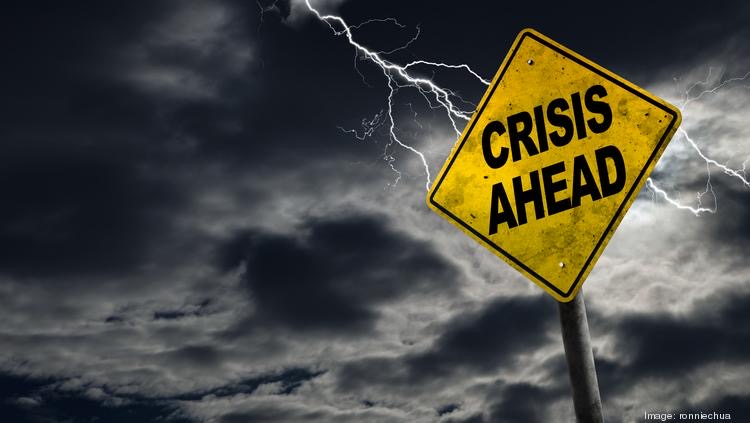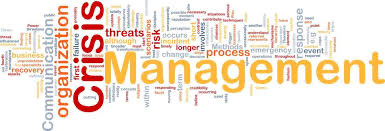Meet Todd Jones. Todd proudly bought his family’s rowhome in a large urban community 30 years ago after he left military service. After raising four children, Todd and his wife are empty nesters and active volunteers in local community activities. Todd is concerned about maintaining the value of his home and began attending community neighborhood beautification programs meetings sponsored by the City Council offices a few years ago. Although he voices his concerns at the community meetings, he still feels frustrated City government workers are not doing their jobs to resolve recurring neighborhood service complaints, such as demolishing abandoned homes, removing wall graffiti, picking up missed trash, etc. As such, his frustration has led him to compile and store “evidence and proof” of notes from conversations with city officials about his concerns in what he called his “City Complaints Black Binder”.
As the new Deputy Managing Director of the City of Philadelphia’s 311 Contact Center, , I would often attend various neighborhood community meeting after community meeting where I would run into the same types of residents. Residents who were frustrated, who’d been long-established fixtures in their neighborhoods, and were seeking answers and change from the City.
More than a few occasions, I was presented with thick “black binders” full of personal meeting reports and general community issues by neighborhood residents. Sitting down, listening to the resident’s frustrations, and flipping through these binders, I became frustrated but also motivated because, in most cases, the residents never called the 311 contact center to report their complaint about various reasons (i.e. didn’t know about 311, didn’t trust department processes, etc.). Behind every concern in those “Black Binders” was a community member who was ready to transform their neighborhood into a better place, and City leadership needed to partner with them to make that a possibility.
At some point, government leaders overseeing 311 contact centers and their service department partners should ask themselves, “what can we do to improve the services we are currently providing?” Unhappy customers cost more to serve and sometimes the answers are not about requesting huge budgets and resources to fix the problem. Fortunately, applying innovation principles using existing resources and processes would be the key to successfully address the problem.
I always think of the Maimonides quote, “give a man a fish and you feed him for a day. Teach a man how to fish and you feed a man for a lifetime.” In this particular scenario, the answer was to create a neighborhood platform for change and provide those who wanted to create that change with the tools to do so. This was how the 311 Neighborhood Liaison Program was designed and implemented.
The program was created to eliminate the middleman and have stand-out community leaders who brought their neighbors’ concerns straight to Philly311. In short, a 311 Neighborhood Liaison is someone who records items discussed during community meetings and contacts Philly 311 for action and answers. Today we have a community engagement in play that:`
• Recruit, identify, train, and engage neighborhood residents into the 311 Neighborhood Liaison program,
• Makes it easy for trained 311 Neighborhood Liaison to report 311 service complaints 24/7/365 using their mobile phone or laptop
• Provide status updates that a City service complaint was accepted and action is being taken by the applicable partner agency using CRM technology,
• Centralizes all concerns, and issues of the community using data, by creating an account for any neighborhood,
• Provides access to the status of issues or concerns at any time by checking the status of the issue through the Philly311 website or contacting or by contacting a local Neighborhood Liaison (neighbor to neighbor engagement),
• Use 311datasets to improve city services and personalize interactions using data analytics and artificial intelligence,
• Builds trust in the community by getting people involved in reporting issues to the 311-contact center and view transparency in government in real-time.
Looking back, I’m happy to report that I did not face any angry residents with black binders at community meetings once we launched the 311 Neighborhood Liaison Program. The program is self-sustainable in many ways that other government services are not. After training, community members are equipped with the necessary tools to create the change they desire.
I like to think that the amount of growth we saw in the program was indicative of its success. In the first two years since launch, the program doubled from 600 participants to over 1,200. Residents will fight for positive service delivery transformation and it is the government leaders’ responsibility to fight along with them.
Author Rosetta Carrington Lue is the CEO of RCL Customer Experience Solutions, LLC and is a Senior Advisor & Government Contact Center Experience Management Consultant, 311 Pioneer & Futurist, 2015 White House Presidential Executive Fellow and former Veteran Experience Office SES and City of Philadelphia Chief Customer Service Officer.





Leave a Reply